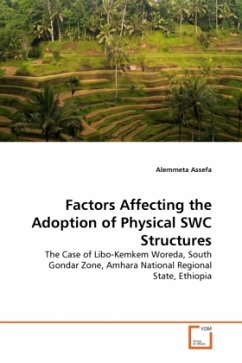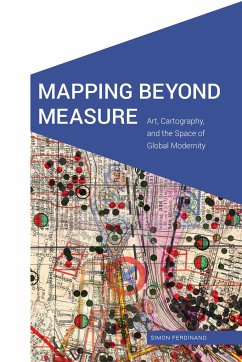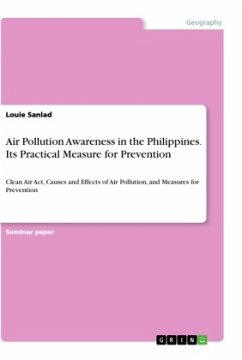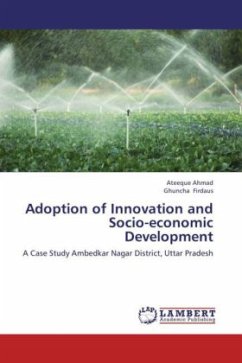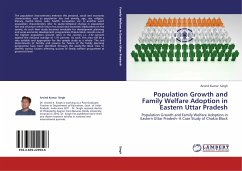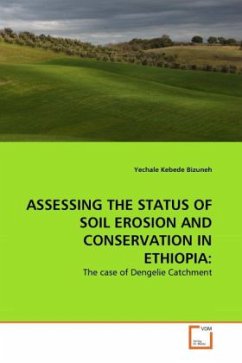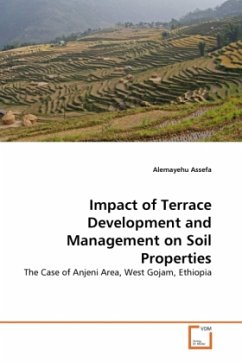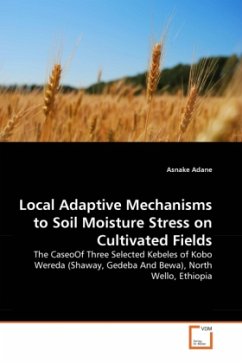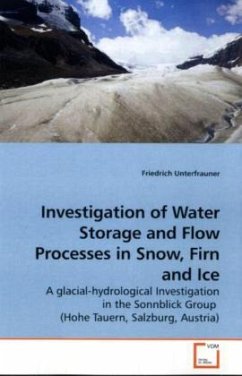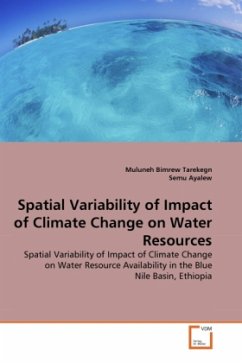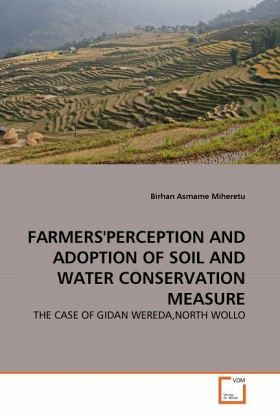
FARMERS'PERCEPTION AND ADOPTION OF SOIL AND WATER CONSERVATION MEASURE
THE CASE OF GIDAN WEREDA,NORTH WOLLO
Versandkostenfrei!
Versandfertig in 6-10 Tagen
32,99 €
inkl. MwSt.

PAYBACK Punkte
16 °P sammeln!
Soil erosion is the serious problems in many part of Ethiopia threatening the life supporting system of the country. The Ethiopian government has for a long time recognized the serious implications of on continuing soil erosion. Thus, SWC technologies were introduced indegraded and food insecured areas mainly through food for work incentives. The major objective of this book was to assess farmers' perception on indigenous and introduced SWC measures and identify factors affecting the adoption of introduced SWC measures in Gidan Wereda, Ethiopia. The findings have shown that the major indigenou...
Soil erosion is the serious problems in many part of Ethiopia threatening the life supporting system of the country. The Ethiopian government has for a long time recognized the serious implications of on continuing soil erosion. Thus, SWC technologies were introduced indegraded and food insecured areas mainly through food for work incentives. The major objective of this book was to assess farmers' perception on indigenous and introduced SWC measures and identify factors affecting the adoption of introduced SWC measures in Gidan Wereda, Ethiopia. The findings have shown that the major indigenous SWC measures practiced by farmers of the study area are flexible, fitting into the farming systems, cheap and simple to construct.The newly introduced SWC measures have got good perception, acceptance and widelypracticed by farmers. Therefore, this implies that the adoption of the introduced SWC measures by farmers in the study area. In general, the book concludes by recommending that the project should integrate the indigenous and biological measures with the physical measures to ensure further sustainability of the introduced SWC measures.



